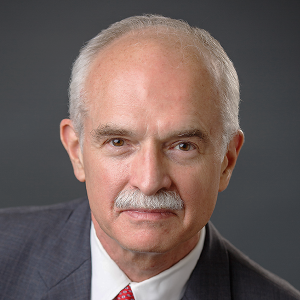America is experiencing an unprecedented “flight from the family,” with a growing number of women neither marrying nor having children. Simultaneously over the past fifty years, the welfare state has experienced a gigantic expansion, and the intact, natural family as a norm has broken up in ever-increasing numbers, with high rates of nonmarital births, long-term and intergenerational welfare dependence, divorce, juvenile and adult crime, drug and alcohol abuse, and other pathologies. This mounting calamity has proceeded as the traditional moral values of individual liberty, personal responsibility, family, and community have been eclipsed by the secular, moral relativism of utilitarianism in claiming that “the end justifies the means.”
The Oxford/Cambridge scholar C. S. Lewis stressed in his book, The Abolition of Man (1943), the importance of the natural law of moral ethics, a code of moral conscience that is inescapable and defines each person as human. Like the inherent truism of mathematics or the natural physical laws, such morality exists on its own, independent of subjective choices or experiences, according to Lewis.
Lewis drew on the natural-law insights of such thinkers as the apostle Paul, Augustine, Magnus, Aquinas, Cicero, Grotius, Blackstone, Acton, and Locke, and he considered modernist dismissals of such work to be fundamentally erroneous. In particular, both Aquinas’s notion of “common sense” (communis sensus) as described in the Summa theologica and the legacy of rational theism found in Jewish, Islamic, Christian, and certain pagan writers—the core philosophical system of the West—had a powerful effect on Lewis. To him, the culture of “modernism” is not just an historical aberration of this “common sense,” but a profound threat to the pursuit of truth, goodness, and civilization itself.
This “common sense,” or Lewis’s notion of common rationality, consisted, in part, of each individual human being’s intrinsic understanding of an objective, universal, and natural legal order of truth and morality (the “natural law,” or what Lewis called the “Tao”), upon which he or she discerns, chooses, and acts.
Of central importance in Lewis’s discussion of natural law is his critique of moral relativism as a theory of ethics and guide to behavior. Lewis claimed that the precepts of moral ethics cannot just be innovated or improvised as we go along:
This thing which I have called for convenience the Tao, and which others may call Natural Law or Traditional Morality or the First Principles of Practical Reason or the First Platitudes, is not one among a series of possible systems of value. It is the sole source of all value judgments. . . . What purport to be new systems or (as they now call them) “ideologies,” all consist of fragments from the Tao itself. Arbitrarily wrenched from their context in the whole and then swollen to madness in their isolation, yet still owing to the Tao and to it alone such validity as they possess. If my duty to my parents is a superstition, then so is my duty to posterity. If justice is a superstition, then so is my duty to my country or my race. If the pursuit of scientific knowledge is a real value, then so is conjugal fidelity.
In this regard, David Brooks notes in his New York Times column, “The Cost of Relativism” (March 10, 2015), that in abandoning the natural-law tradition upon which the social norms for liberty and civil society rest, we have unleashed a self-destructive, cultural chaos: “The health of society is primarily determined by the habits and virtues of its citizens. In many parts of America there are no minimally agreed upon standards for what it means to be a father. There are no basic codes and rules woven into daily life, which people can absorb unconsciously and follow automatically.”
Brooks’s insight is as profound today as when the same view was first reported in 1965 in the controversial "Moynihan Report" (The Negro Family: The Case for National Action), published by the U.S. Department of Labor. Daniel Patrick Moynihan noted that “from the wild Irish slums of the 19th-century Eastern seaboard, to the riot-torn suburbs of Los Angeles, there is one unmistakable lesson in American history: a community that allows large numbers of young men to grow up in broken families, dominated by women, never acquiring any stable relationship to male authority, never acquiring any set of rational expectations about the future—that community asks for and gets chaos. Crime, violence, unrest, disorder. . . are not only to be expected, they are very near to inevitable.”
Sara McLanahan (Princeton) and Christopher Jencks (Harvard) have corroborated Moynihan’s warnings by showing that since the time he wrote his report, the percentage of children raised by single mothers has risen from 25 to 50 percent among blacks and from 7 to 19 percent for whites. In their recent article, "Was Moynihan Right?", in EducationNext (Spring 2015), they note that by 1990 roughly 70 percent of all black births were to single women, and the figure has hovered near 70 percent since that time, despite federal spending of $15 trillion on antipoverty programs. Although the percentage of children born to single mothers has not risen among blacks since the 1990s, by 2012 it had increased among whites to 36 percent and among Hispanics to 50 percent. “And the meaning of single motherhood has further changed since the 1960s as single mothers today are far less likely than their predecessors to have ever been married. In 1960, 95 percent of single mothers had been married at some point in the past. By 2013 however, only 50 percent had ever been married.”
A recent Brookings Institution study by Richard Reeves and Joanna Venator (February 2015), Sex, Contraception, or Abortion? Explaining Class Gaps in Unintended Childbearing, further shows that young, single women living below the poverty level are nearly 500 percent more likely to have a child than affluent single women: “women with higher incomes are much more successful at ensuring that sex does not lead to an accidental baby. This almost certainly reflects their brighter economic and labor market prospects: simply put, they have more to lose from an unintended birth. Improving the economic and educational prospects of poorer women is therefore an important part of any strategy to reduce unintended birth rates.”
Similarly, a National Bureau of Economic Research report by Melissa Kearny and Phillip Levine, “Income Inequality and Early Non-Marital Childbearing: An Economic Exploration of the ‘Culture of Despair’” (2012), concludes that “growing up in an environment where there is little chance of social and economic advancement leads young women to bear children outside of marriage. These women perceive that they have so little chance for success in life . . . [that t]hey see no reason to postpone having a child and may even benefit from having one, regardless of marital status.”
However, although the poisonous government policies causing the breakdown of the family are now known, the question remains whether the cultural decline that has led to such measures will be reversed. To do so will require abandoning the delusional, moral relativism of utilitarianism in order to restore natural law as the standard for public morality. In the process, the needed privatization and depoliticization of civic institutions can fully proceed. In short, the cultural foundations of the “progressive” leviathan must be abandoned to restore liberty, personal responsibility, the family, and community.








